Grain Trials Phase 1- Overview & Planning
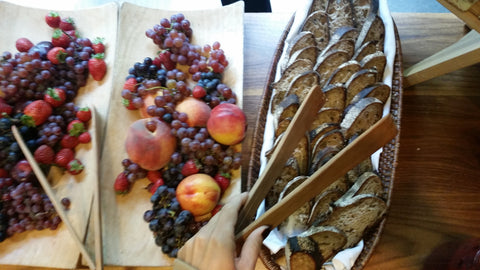
Ever since I started eating gluten-free I have felt better. I loved bread and hope to want to add it back to my diet although I want better bread. I want real wheat, the wheat that was historically digestible and had a time-honored process to it. The "land race" type that grew for decades before machines and governments transformed it into a cheap mono-cropped commodity.
Gluten-free doesn't mean healthier and with all the additives, refined gums, natural flavors and "empty starches" gluten-free is actually looking not so great.
Personally, I wanted to learn more about the gluten-free debate not through baking but by growing grains. Grains? The "anti-food" of the billion dollar gluten-free industry? Yes, because essentially, gluten has taken the bad rep for too long and it's time to upgrade grain the conversation.
Inspired by Chef Dan Barber's book, The Third Plate, talks about "land-race" and other grains that aren't typically in commercial products. This heirloom grain conversation became more real at the Food For Tomorrow at Stone Barns listening to Chef Barber talk with Kimbal Musk about soil health.
Thankfully, the Rocky Mountain Seed Alliance locates heritage grain varieties of the past and is returning them to active production in farmers’ fields.
The future of regenerative agriculture includes incorporating poly-cropping with a rotation of cover crops and legumes. As an ecological system, grains, thus bread creates new, resilient economies by region. Our region is piloting this trial growing uncommon grains to learn the process from seed to flour.
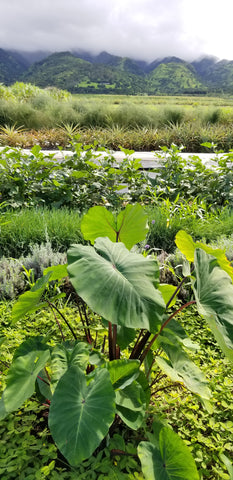
Hawaii imports over 80% of our food and the last flour mill closed several years ago. To be sovereign includes feeding ourselves. Local food economies based on a diverse variety of plants is always a good idea.
Go Farm is hosting these special seeds in their plots and is a living example of their mission to enhance Hawaii’s food security and economy. Here's our journey so far.
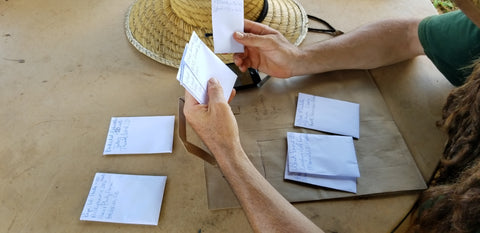
Step 1: Identify and collect the seeds. We picked a wide variety in our search for grain varieties. The Seed Alliance focused on what Glenn Roberts, the visionary behind South Carolina’s Anson Mills, calls “pre-industrial, low-input, drought-tolerant, deep-root, tall-straw landrace grains.”
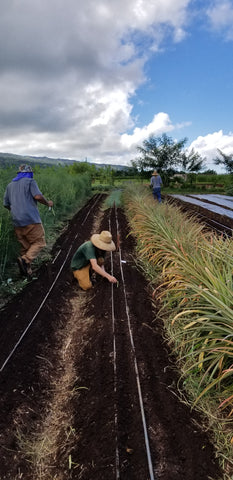
Seeds for the most interesting varieties were available only in very small quantities. This meant farm-scale trials (which require 20 lbs of seed or more) were going to be impossible until their seed supplies are increased. Thanks to Monica Spiller and her Whole Grain Connection network (wholegrainconnection.org), there is a road map and timeline to increase their precious seeds. By the spring of 2019, they expect to make available 25 lb bags of seeds for farmers of the best varieties that emerge from these forthcoming evaluations and increases through this project. Until then, these “garden-sized” trials will be for seed increase.
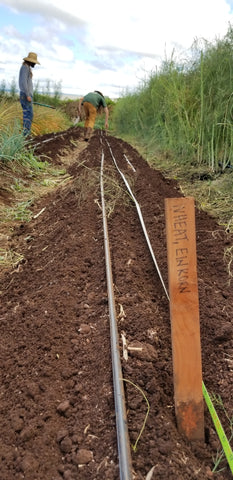
Step 2: Weekly we are looking out for the “field effect.” The field effect refers to changes in the success of crops due to environmental variations across the fields. These differences could be variations in temperature, wind, water, soil fertility, etc. There is only enough seed this year for what is called “observational trials.” We planted 50-100 seeds for each variety together in a single row between other crops.
Stay connected through our Facebook page for weekly updates.
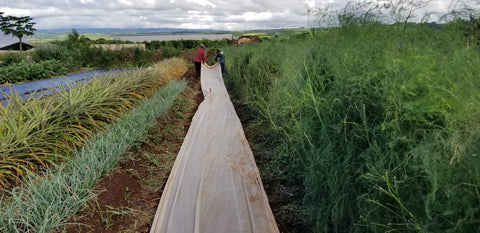
.Step 3: Trial goals will be to increase seed of the varieties that adapt to Hawaii and practice observation and data recording skills.
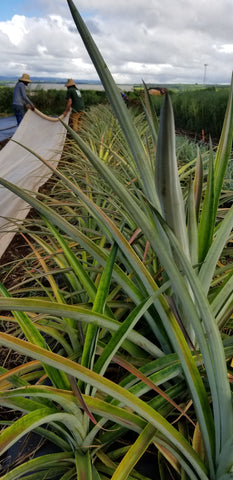
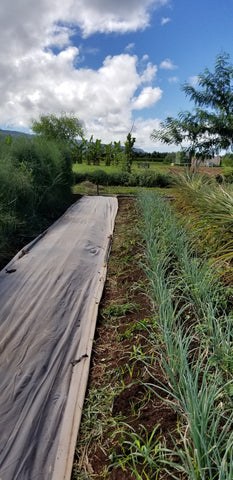

Aloha, Brynn! It was a great meeting you at the event, Mana Up Presents Native Hawaiian Female Founders Panel last week. I’ve also been on Gluten Free Diet since 1st December of 2015. As you mentioned, leaving gluten has affected my life in a healthy, positive and happy way a lot. Your blog is very eduational.
Einkorn is the organic grain I am using with organic rye in my weekly sourdough bread. You can get it from einkorn.com. We once tried to grow some but it wasn’t a real trial. Were you successful with your einkorn?
Brynn, this is really cool work!! I am excited to read more and hope it’s going well. I love bread too and baking it is always an interesting task that seems to never be the same from one time to another. I look forward to learning more about the seed to flour journey!